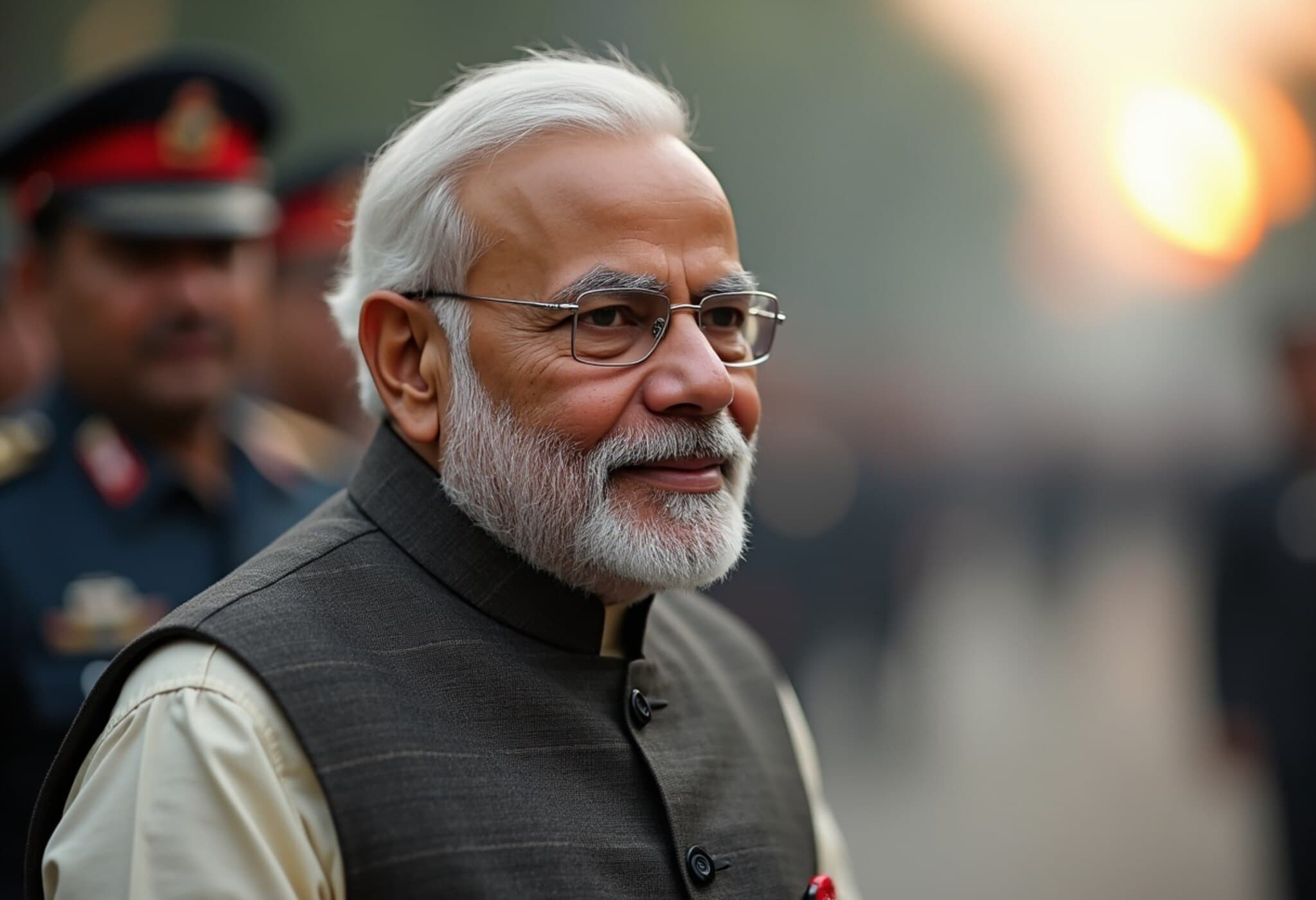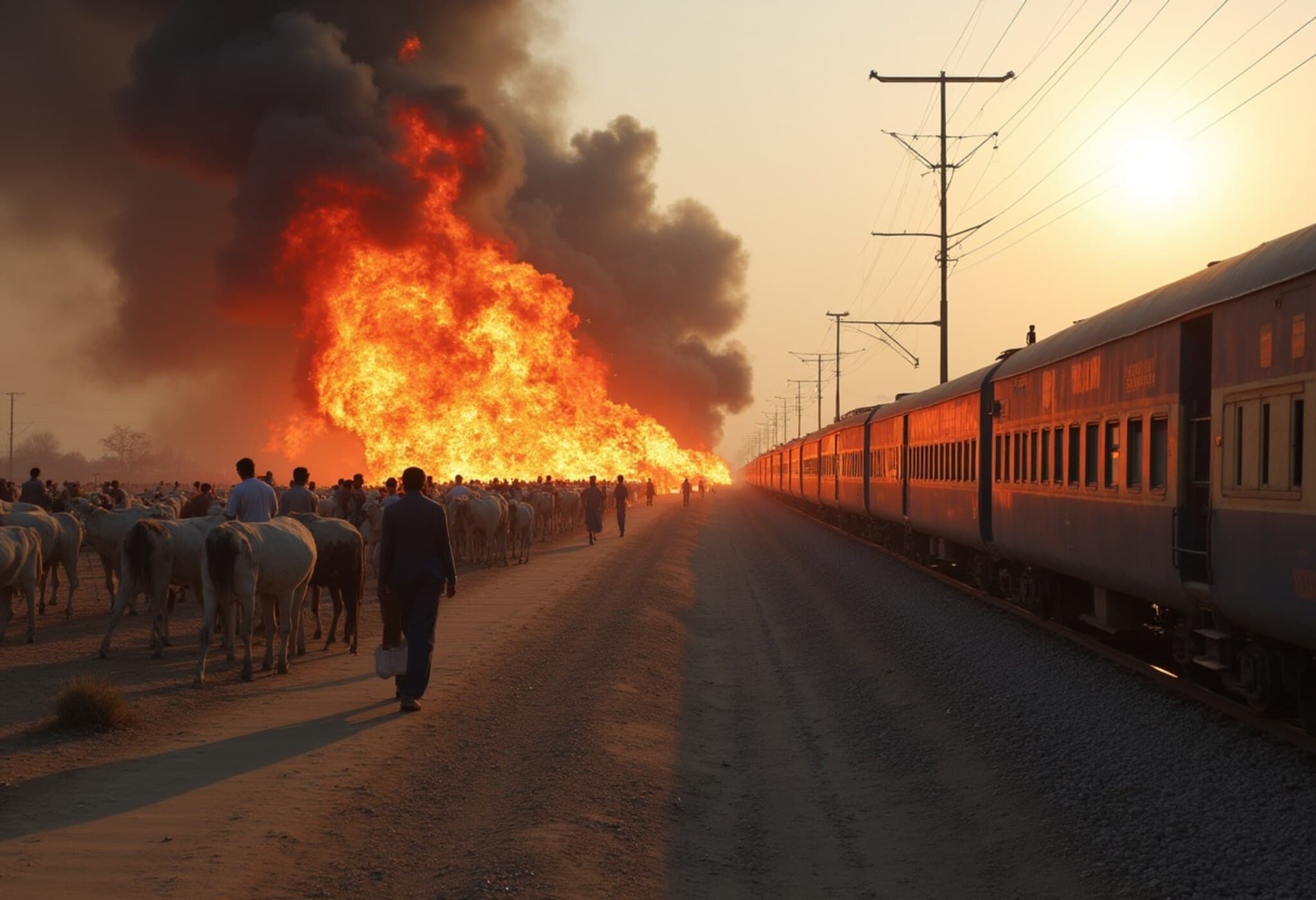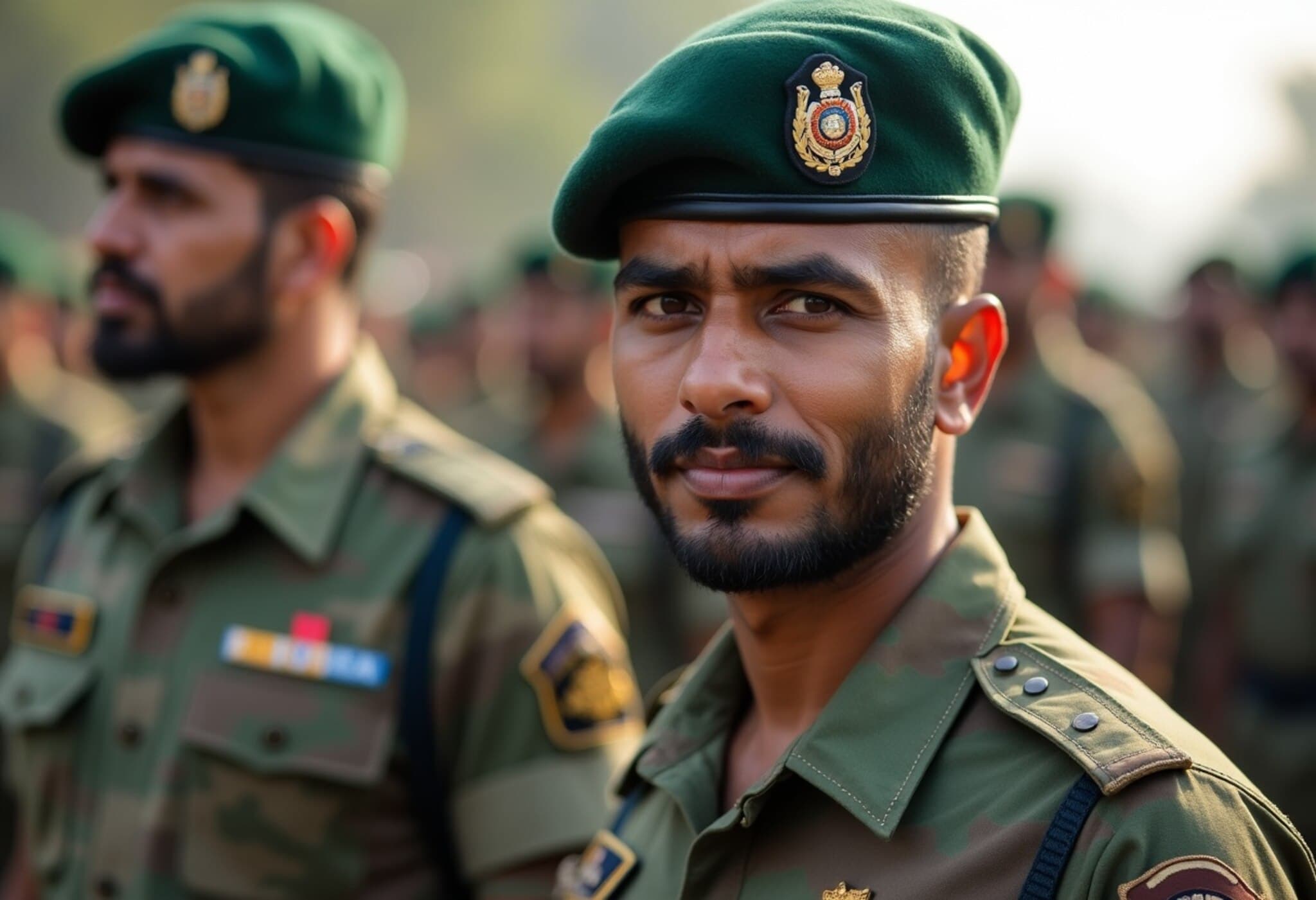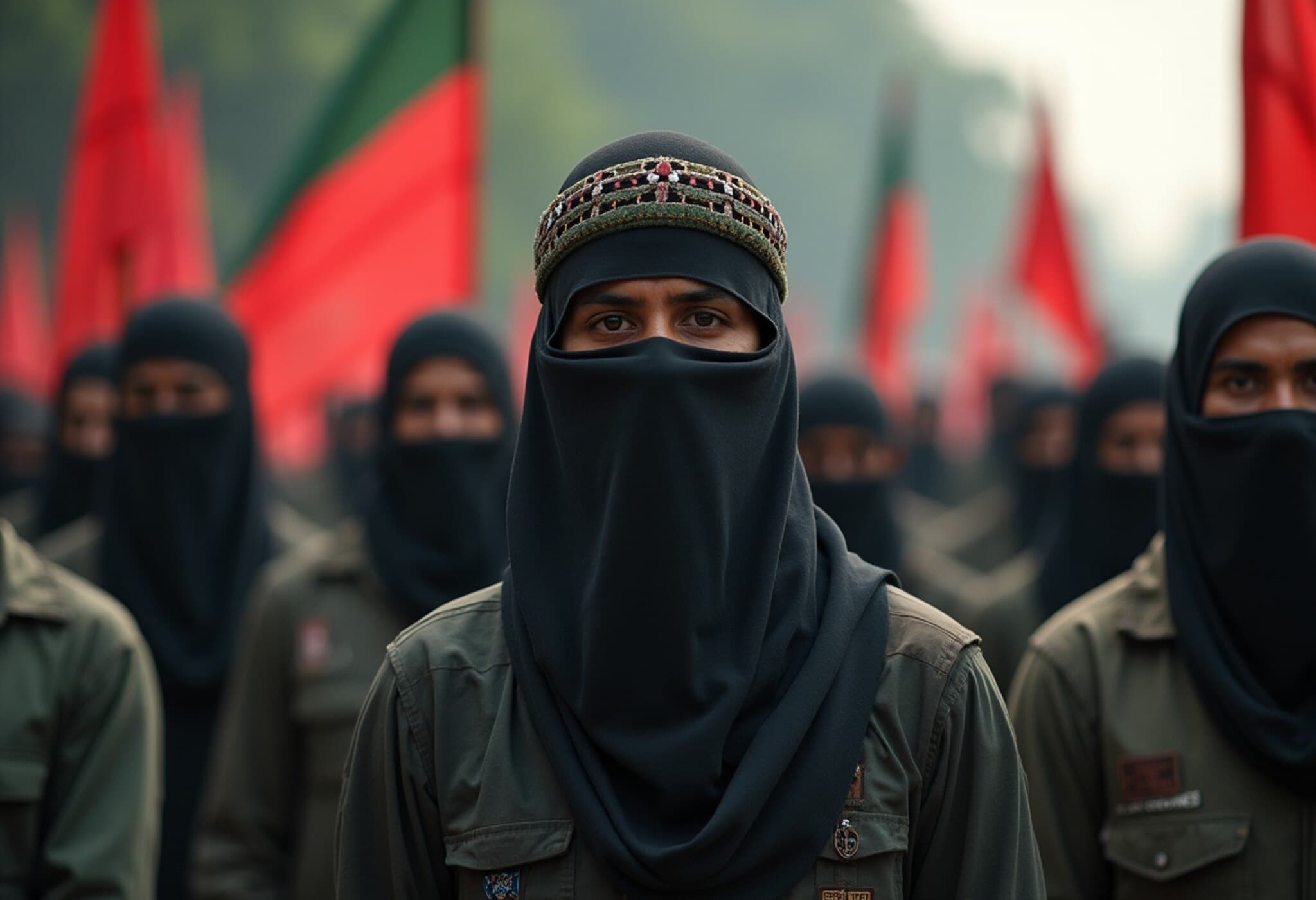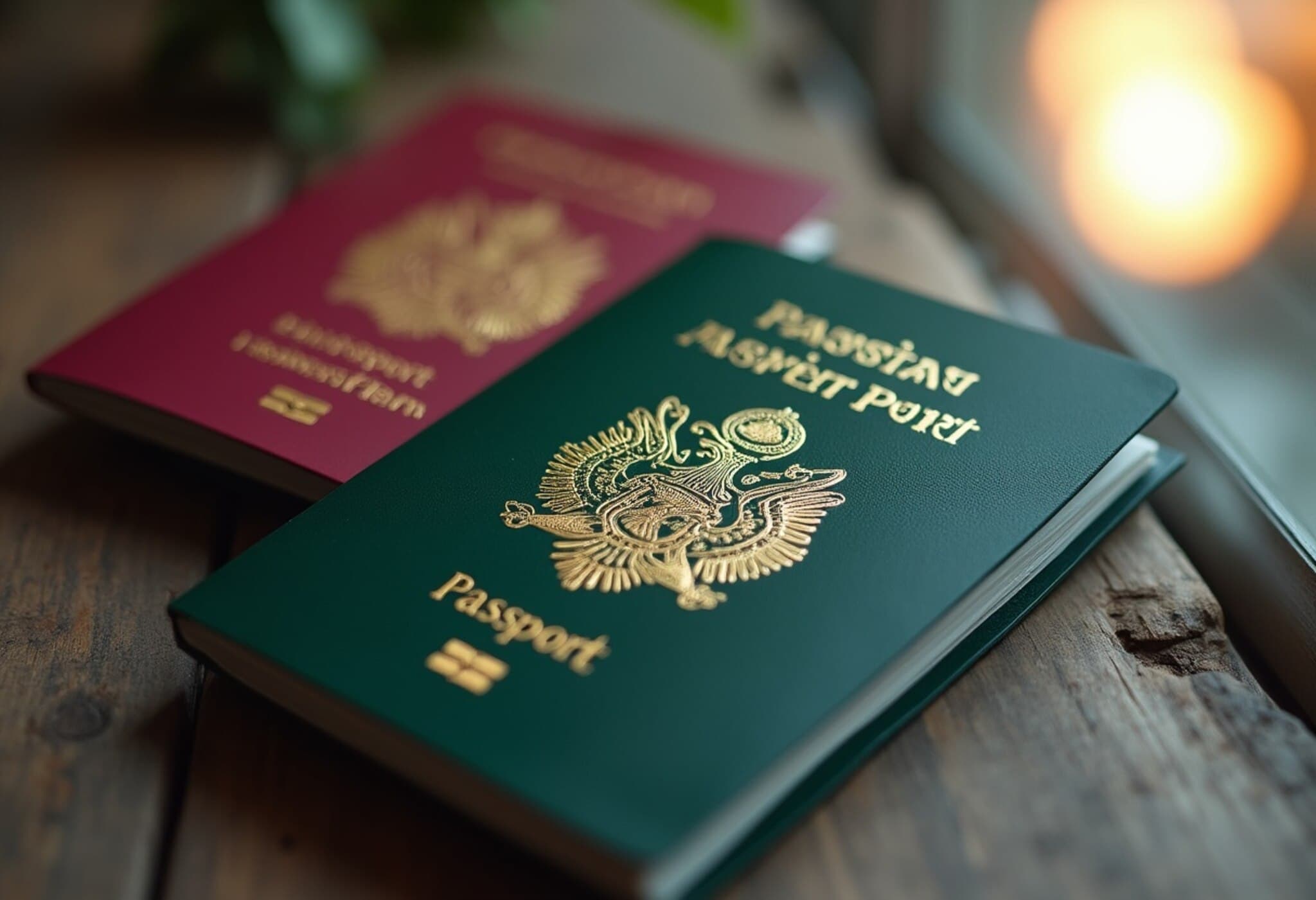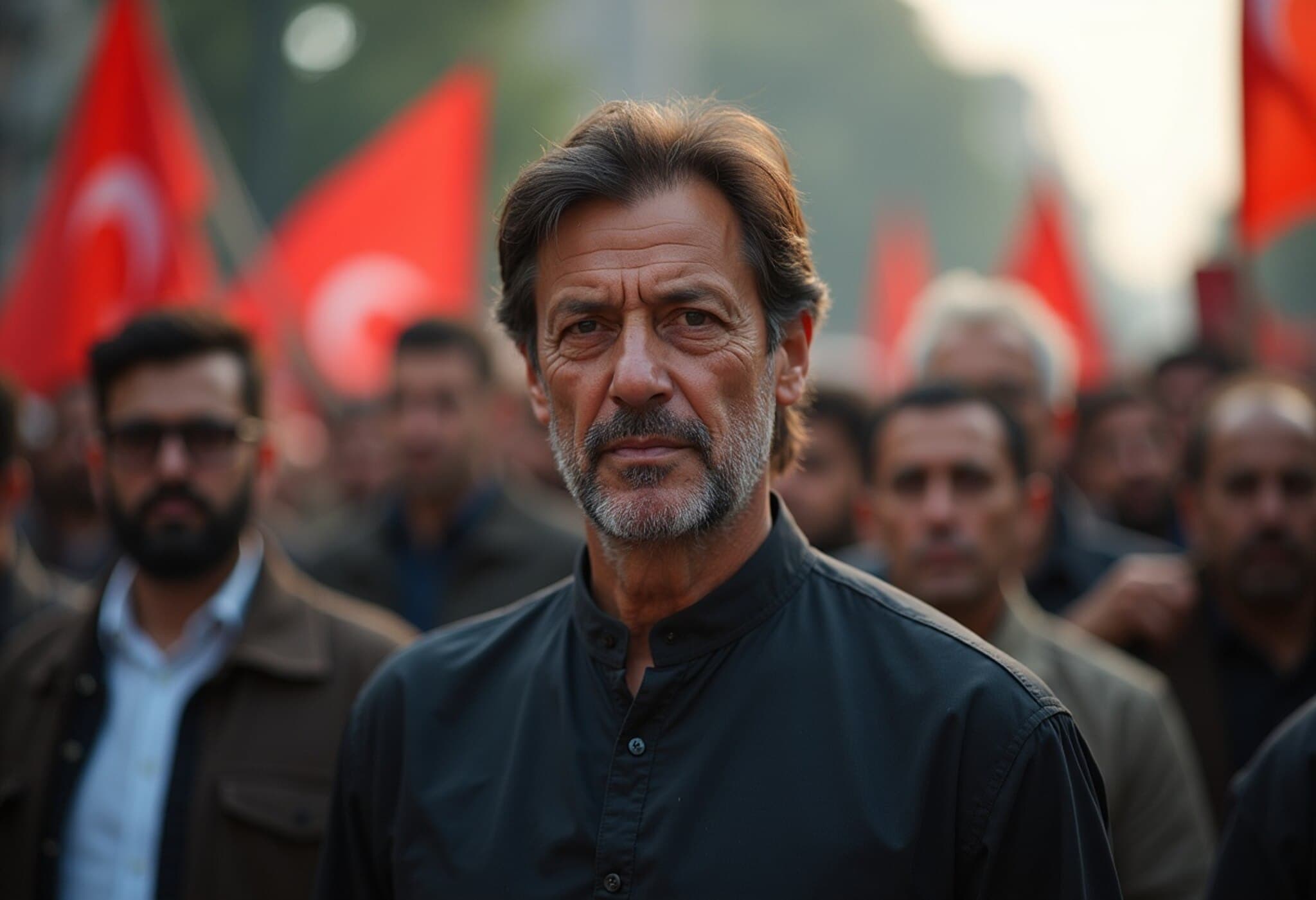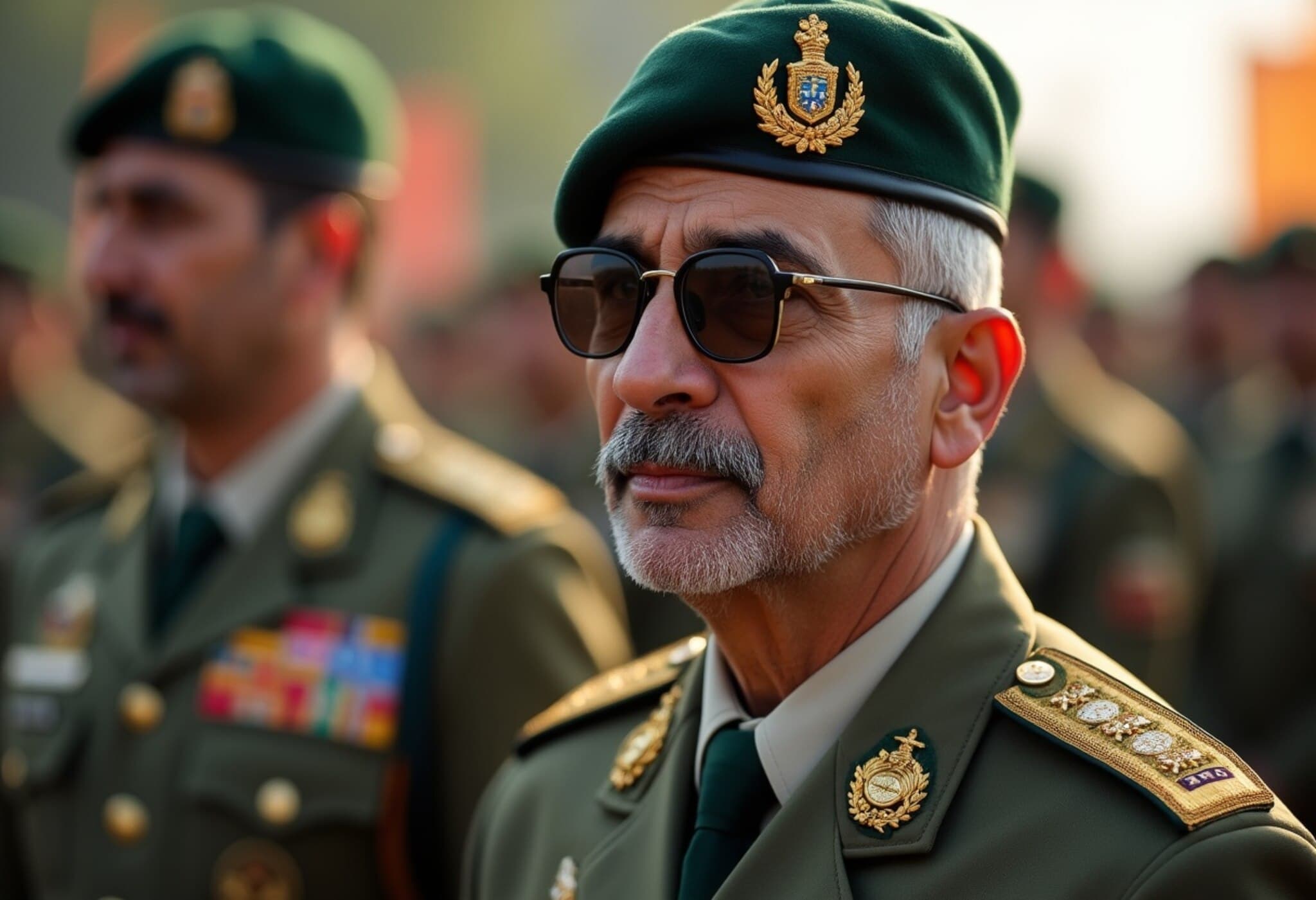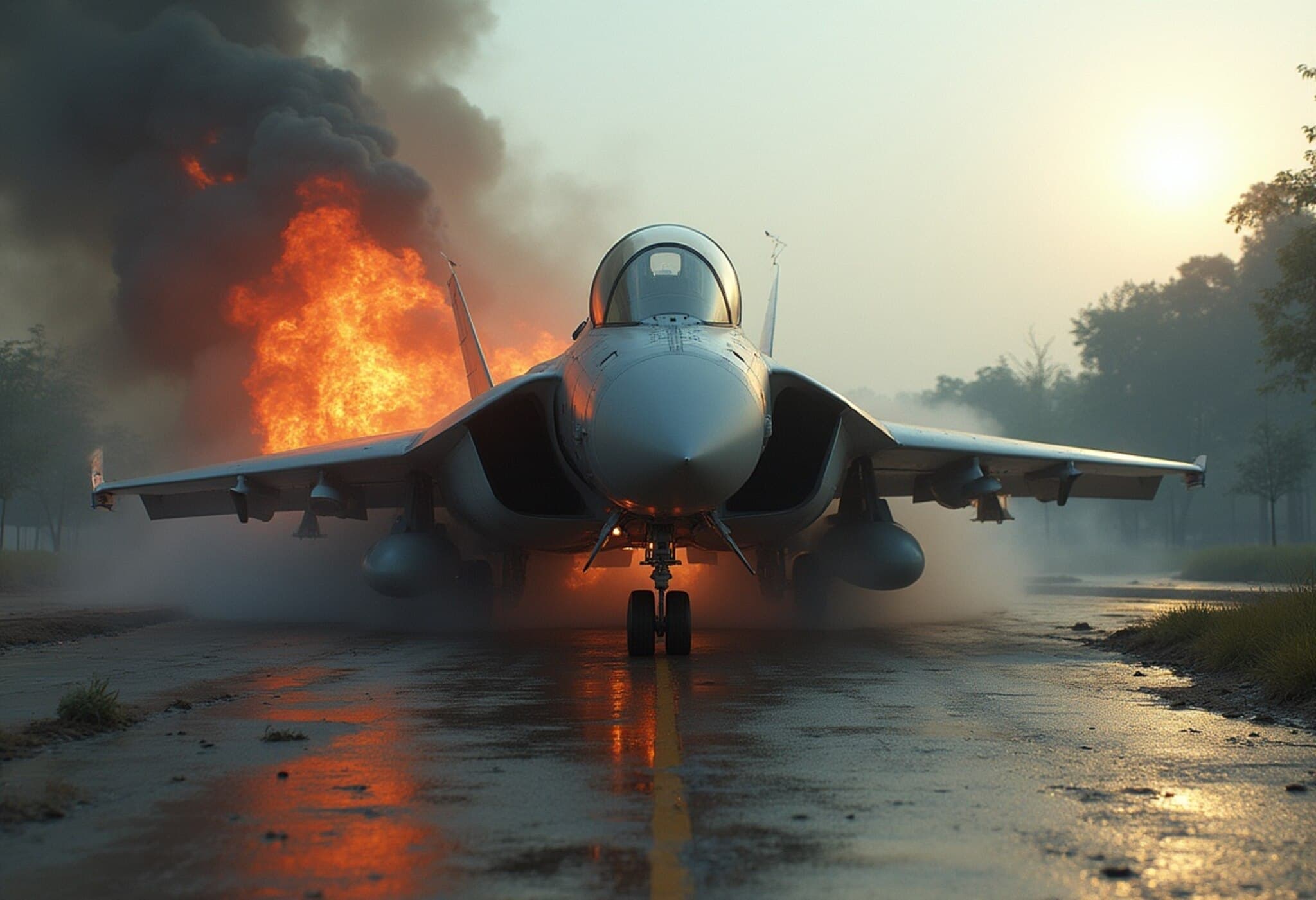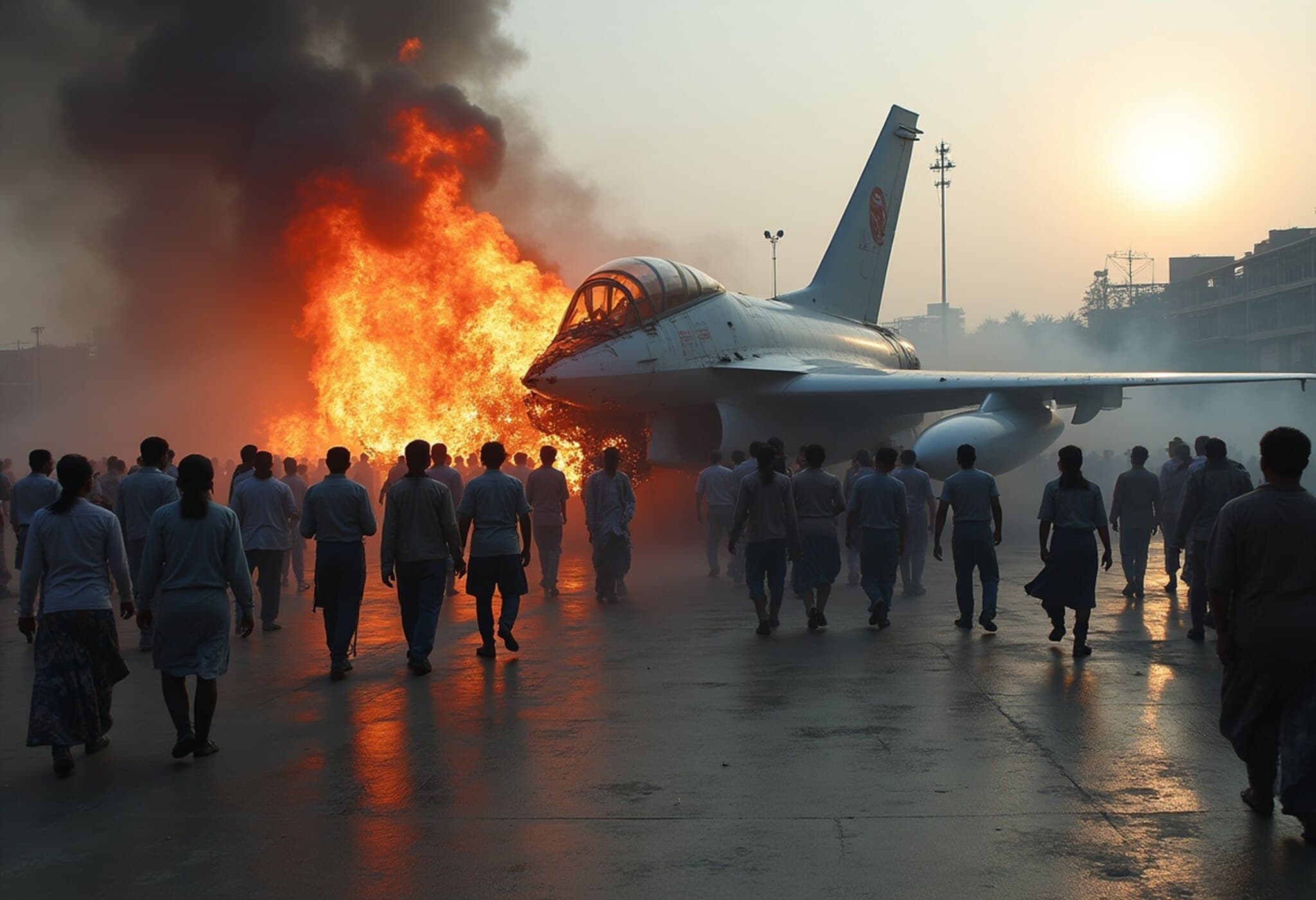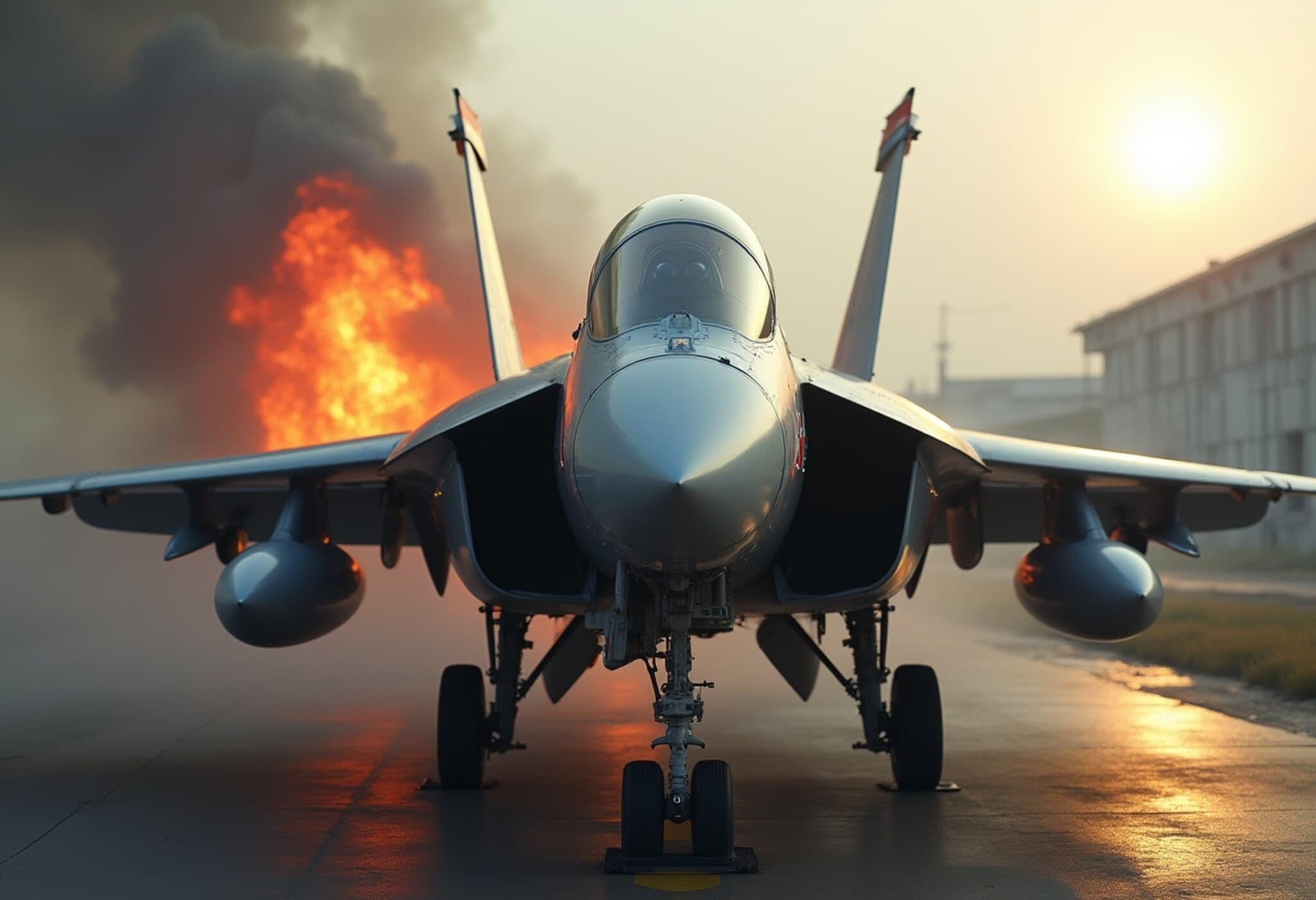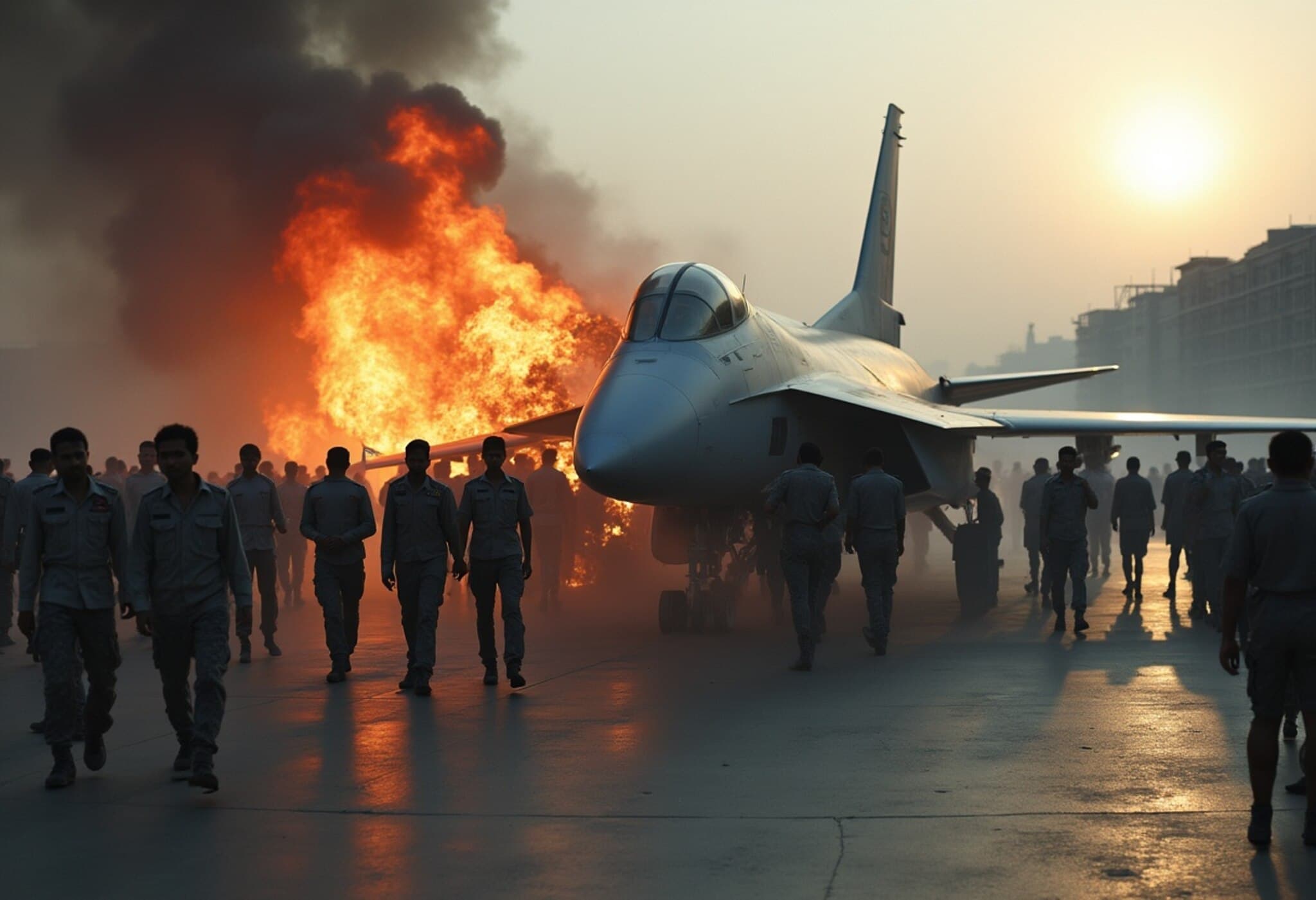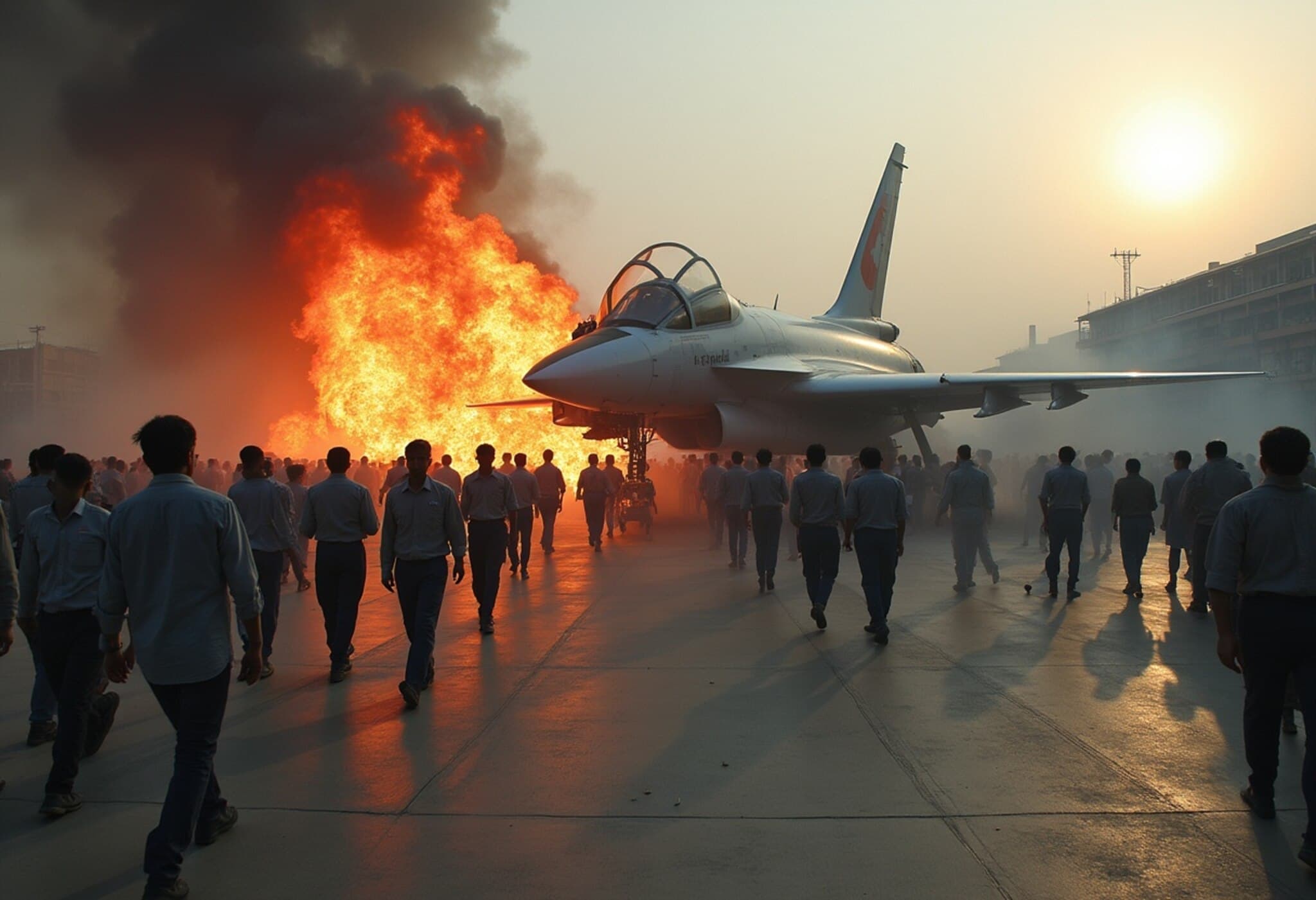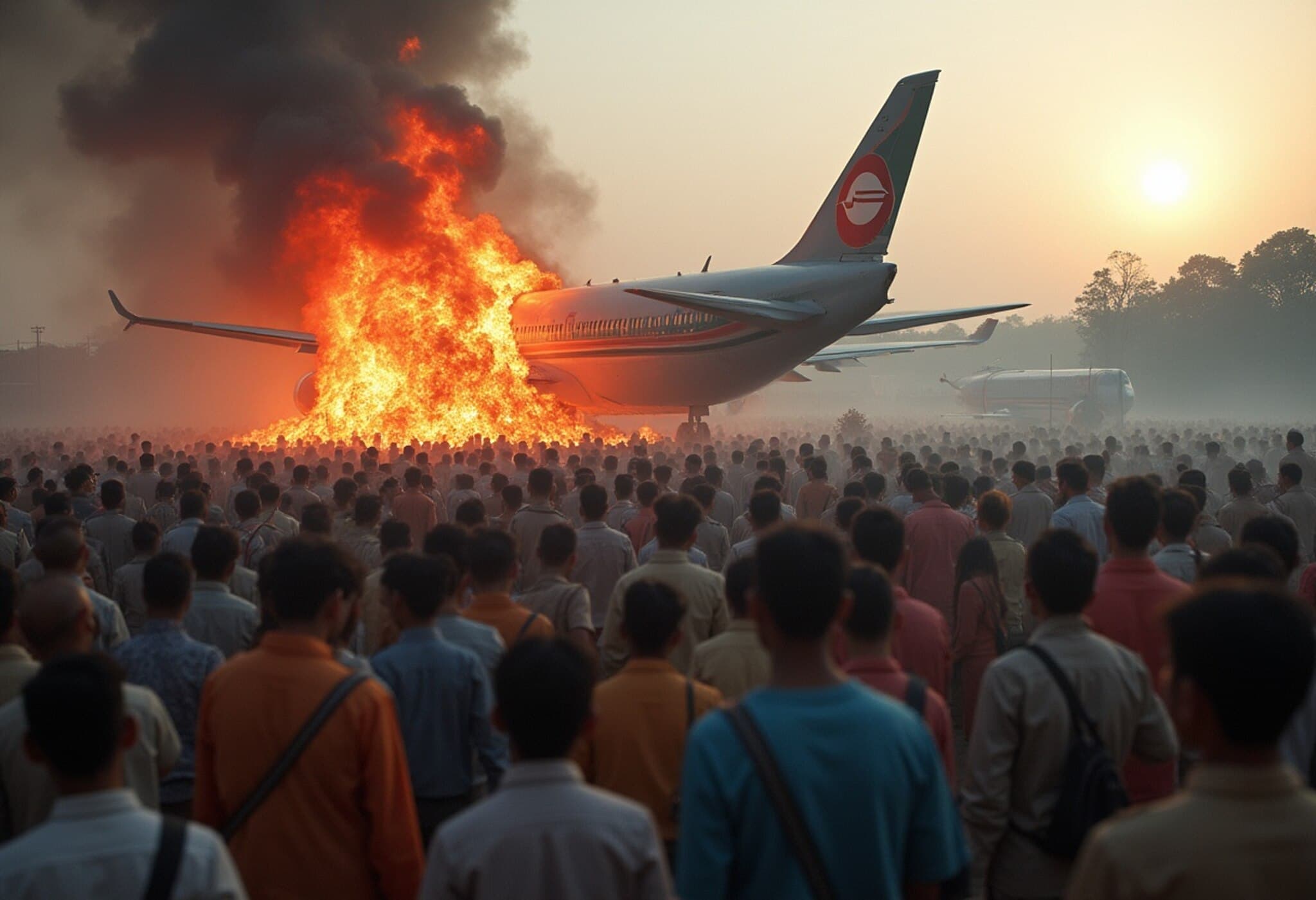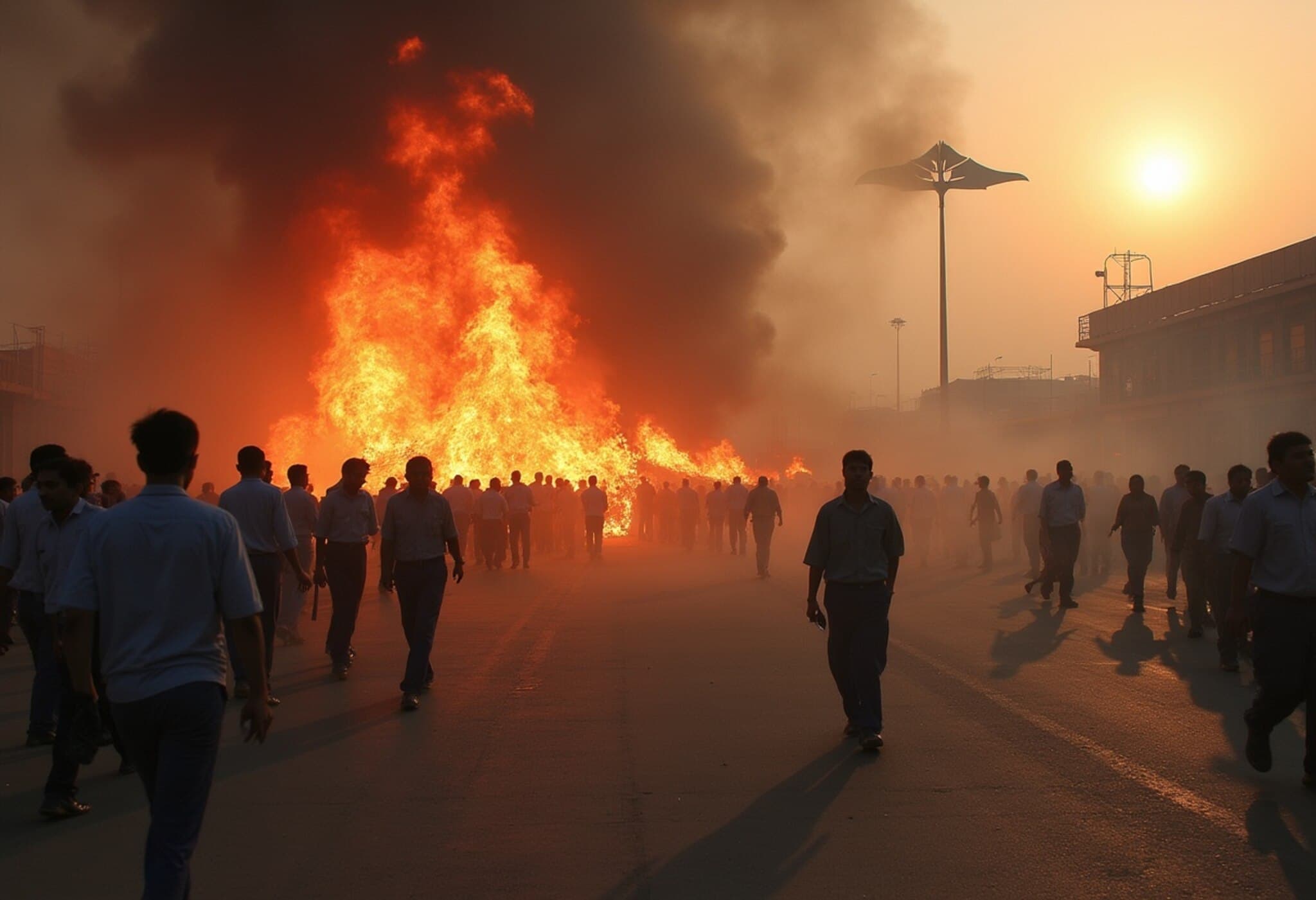PM Modi Expresses Condolences and Readiness to Assist Following Dhaka Air Force Jet Crash
On July 21, 2025, Prime Minister Narendra Modi publicly conveyed his heartfelt sympathies to Bangladesh in the wake of a devastating military aircraft crash in Dhaka’s Diabari neighborhood. The tragic incident claimed the lives of at least 20 people, many of whom were young students, and left over 170 others injured.
A Nation Mourns as Technical Failure Leads to Catastrophe
The Bangladesh Air Force training jet involved, identified as an F-7 model procured from China at approximately $5.85 million per unit, took off from the Kurmitola Air Force Base. It encountered a technical malfunction shortly into its routine training flight.
Military spokesperson Lieutenant Colonel Sami Ud Dowla Chowdhury revealed that the pilot heroically attempted to steer the aircraft away from densely populated areas. Despite these valiant efforts, the jet tragically crashed into a two-story building belonging to Milestone School and College, causing numerous casualties on site.
Tragically, the pilot did not survive.
Impact on the Community and Emergency Response
The crash occurred during school hours, which contributed to the high number of casualties, with many victims being children present inside the school. Sayedur Rahman, a Special Assistant to Bangladesh’s interim ruler Muhammad Yunus, informed that around 70 of the injured are currently hospitalized with severe burns and other critical injuries.
Firefighters and military rescue teams promptly responded to the disaster, working tirelessly to extinguish fires and tend to survivors amid chaotic and heart-wrenching circumstances.
India’s Gesture of Solidarity and Regional Cooperation
Prime Minister Modi took to X (formerly Twitter) to express his condolences and solidarity: "Deeply shocked and saddened at the loss of lives, many of them young students, in a tragic air crash in Dhaka. Our hearts go out to the bereaved families. We pray for the swift recovery of those injured. India stands in solidarity with Bangladesh and is ready to extend all possible support and assistance."
Why This Matters: Regional Safety and Military Preparedness
This heartbreaking incident underscores the risks associated with military training flights operating above urban areas in densely populated cities. Aviation safety experts often debate the protocols for such exercises, especially in cities like Dhaka where airspace is crowded and residential areas densely packed.
From a policy perspective, this tragedy raises critical questions about:
- The adequacy of safety measures and emergency preparedness for military flights over civilian zones.
- Investments in research and upgrades to aviation technology to prevent technical failure.
- Cross-border collaboration on aviation safety and disaster response between South Asian neighbors.
India’s swift offer of assistance highlights the prime minister’s commitment to regional stability and humanitarian aid, reflecting the important ties between India and Bangladesh. As two bordering nations with interlinked economies and populations, cooperative efforts in disaster management are paramount.
Understanding the Human Toll Behind the Headlines
Behind the stark numbers lies a community grappling with loss and trauma — families mourning young lives cut short, classmates and teachers coping with shock, and first responders confronting the immediate aftermath. While official reports focus on facts and figures, the emotional resonance expands far beyond.
Looking Ahead: Lessons and Legacies
As investigations continue, both Bangladesh and its neighbors are called upon to reflect on how to enhance aviation safety standards and emergency protocols. Greater transparency and community engagement could help bolster public trust and resilience.
Editor’s Note
This tragic event is a somber reminder of the vulnerabilities inherent in mixing military activities with civilian life, especially in tight urban areas. It prompts us, as global citizens, to consider the balance between operational readiness and public safety. For policymakers, there’s an urgent need to assess and enhance safety frameworks while fostering stronger international cooperation in crisis assistance. The enduring human cost of such accidents must fuel efforts towards safer skies and more robust disaster responses across South Asia.

